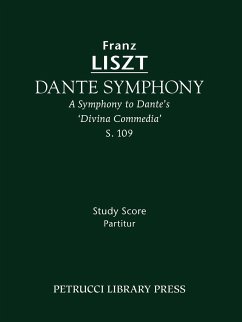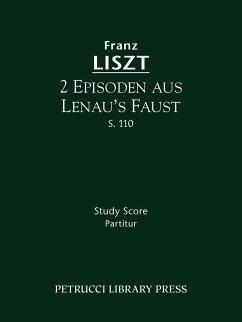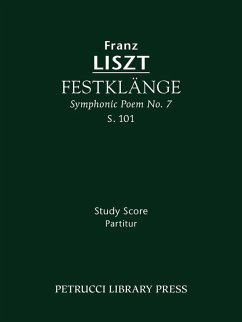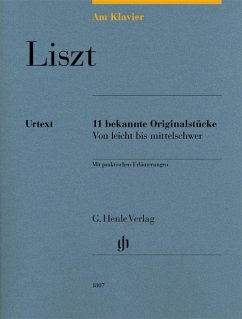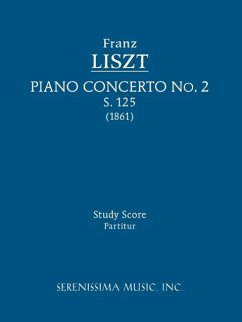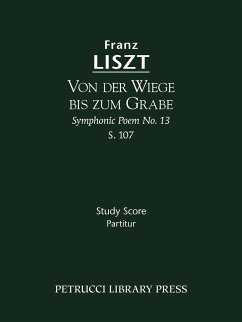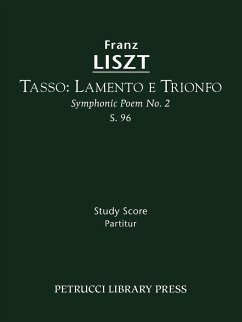
Tasso. Lamento e Trionfo, S.96
Study score
Herausgeber: Taubmann, Otto
Versandkostenfrei!
Versandfertig in 1-2 Wochen
13,99 €
inkl. MwSt.

PAYBACK Punkte
7 °P sammeln!
The second in a ground-breaking series of thirteen works for orchestra, Liszt's Tasso. Lamento e Trionfo was inspired by Goethe's drama Torquato Tasso. Composed from 1849-54, it was given its premiere in Weimar 19 April 1854 with the composer conducting the Weimar hofkapelle. This new study score is a digitally-restored reissue of the score edited by Otto Taubmann from the first volume of the Liszt-Stiftung edition, published in 1908. In contrast so many of the on-demand scores now available this one comes with all the pages with each image thoroughly checked to make sure it is readable, then ...
The second in a ground-breaking series of thirteen works for orchestra, Liszt's Tasso. Lamento e Trionfo was inspired by Goethe's drama Torquato Tasso. Composed from 1849-54, it was given its premiere in Weimar 19 April 1854 with the composer conducting the Weimar hofkapelle. This new study score is a digitally-restored reissue of the score edited by Otto Taubmann from the first volume of the Liszt-Stiftung edition, published in 1908. In contrast so many of the on-demand scores now available this one comes with all the pages with each image thoroughly checked to make sure it is readable, then beautifully printed on quality stock with an attractive glossy cover. Also included is an informative introduction by Liszt scholar Soren Afshar (Funper), a major contributor to the vast collection of Liszt pieces on IMSLP. The matching orchestral parts and full score are now available from Serenissima Music.




